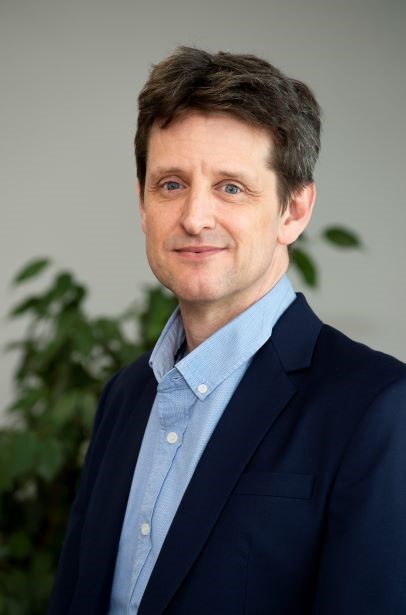
Loading
Tuesday 28. May 2019 at 13:00 to 17:30
Tuesday 28. May 2019 at 08:00
2Ø.071,
Dalgas Have 15,
2000 Frederiksberg
2Ø.071
Dalgas Have 15
2000 Frederiksberg
Competition, Industrial Development and Structural Transformation:
Lessons from South Africa
Program
Session 1: Competition, productivity and industrial development (13:00-14:30)
This paper considers the role of competitive rivalry in processes of structural transformation through the lens of the South African petrochemical to plastics value chain. South Africa is an interesting example in this regard given the little change observed in structure, despite far-reaching market-oriented economic reforms and opening up of the economy. The experience does not support the Schumpeterian faith in entry and efficient markets, which will allow innovators to challenge incumbents. Instead, it points to the implications of pervasive information asymmetries and other market imperfections along with imperfect competition and the advantages which can be built up by incumbents. The review of competition enforcement and regulation with regard to chemicals and plastic products indicates the limits of a simplistic approach to understanding competition as simply arrangements which impede otherwise well-functioning markets and the implications for industrial development.
Discussants: John Rand (University of Copenhagen) and Michael Wendelboe Hansen (Copenhagen Business School)
Carol Newman (Trinity College Dublin, Ireland) John Rand* (University of Copenhagen, Denmark) Mpho Tsebe (National Treasury, South Africa)
Misallocation of labor and capital can greatly reduce aggregate productivity. In this study, we use tax administrative data to examine the extent of resource misallocation in the South African context. We focus on the extent to which specific identifiable distortions, including the inefficient allocation of credit and government incentives for the use of different inputs, affect the allocation (or mis-allocation) of capital and labor across firms. We quantify the extent to which alleviating these distortions would improve productivity for the manufacturing sector in South Africa. We also analyze heterogeneity in the extent of misallocation along the firm size distribution and identify firm size categories where policy distortions are having the biggest impact on productivity.
Discussant: Simon Roberts (University of Johannesburg)
Open discussion
Coffee break (14:30-14.45)
Session 2: Business power and regulation (14:45-16:15)
Stefano Ponte* (CBS)
Power has been a foundational concept in global value chain (GVC) research. Yet, in most GVC scholarship, power is not explicitly defined and is applied as a unitary concept, rather than as having multiple dimensions. Clarifying the concept of power has become particularly urgent in recent years as GVC research has proliferated beyond dyads of transacting firms or firm-state linkages and incorporated other stakeholders and mechanisms such as NGOs, labor unions, standards, norms and conventions. In this article, we propose a typology for the varied meanings and usages of power in GVC governance. We delineate two principal dimensions: trans- mission mechanisms – direct and diffuse; and arena of actors – dyads and collectives. Combined, these two dimensions yield four ideal types of power in GVC governance: bargaining, demonstrative, institutional and constitutive. We offer brief illustrations of these four types of power and provide an agenda for further research in the field.
Discussant: Aarti Krishnan (University of Manchester)
This paper examines the relationships between the structure of the economy, economic performance, the share of returns from economic activity, and different forms of business power in South Africa. Drawing from political economy frameworks, the paper analyses how specific business interests set agendas and shape policy to maintain economic power and in turn influence outcomes. Drawing from the Metals, Machinery and Equipment (MME) value chain, the paper engages with how the interests of incumbents have prevailed despite changes in their main sources of power. Our analysis shows that economic structure is a key source of business power, and that the relative strength of upstream actors in value chains facilitates their interests over those of downstream industries, thus limiting the scope of structural transformation.
Discussant: Morten Ougaard (Copenhagen Business School)
Open discussion
Session 3: Next steps – possible future collaboration and research agenda (16:15-16:45)
Wine reception (16:45-17.30)
* presenter
About the organizers: 
John Rand is Professor (mso) of Development Economics at the Department of Economics, University of Copenhagen. He is member of Development Economics Research Group (DERG), the Copenhagen Center for Disaster Research (COPE) and non-resident research fellow at UNU-WIDER. His research is primarily empirical, with a focus on being policy relevant in a developing country context, especially within the area of firm dynamics and industrial policy. His research has therefore often been carried out in collaboration with national ministries and research institutions (e.g. Ghana, Mozambique, Myanmar, South Africa, Tanzania and Vietnam) but also with international organizations such as the UN, ILO and the World Bank.

Simon Roberts is an economics director at the UK’s Competition and Markets Authority and a professor of economics at the University of Johannesburg where he founded the Centre for Competition, Regulation and Economic Development (CCRED). He has worked extensively and published on issues of industrial development, trade, regional value chains, competition and economic regulation in Southern and East Africa, advising governments, competition authorities and regulators. He has also testified as an expert witness in a number of major cases. Simon previously held the position of Chief Economist and Manager of the Policy & Research Division at the Competition Commission of South Africa from November 2006 to December 2012. Prior to this he was an associate professor at the University of Witwatersrand.
Stefano Ponte is professor of International Political Economy at Copenhagen Business School and the director of the Centre for Business and Development Studies. His primary interest lies in transnational economic and environmental governance, with focus on overlaps and tensions between private governance and public regulation. Stefano’s research, fieldwork, teaching and policy work is informed by international political economy approaches, global value chain analysis and convention theory. His work analyzes governance dynamics and economic and environmental upgrading trajectories in global value chains — especially in developing countries and in Africa. Stefano is particularly interested in how sustainability standards, labels and certifications shape agro-food value chains, and in how different forms of partnerships affect sustainability outcomes.
Click to view the event location on Google Maps >